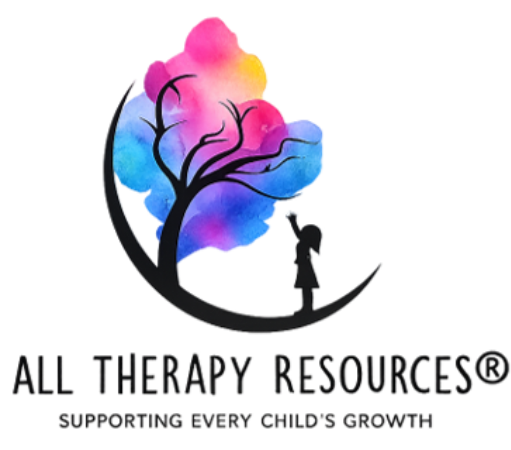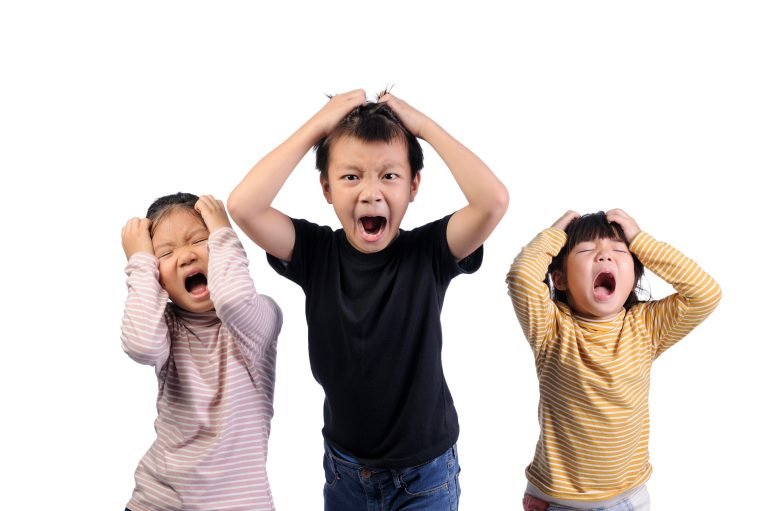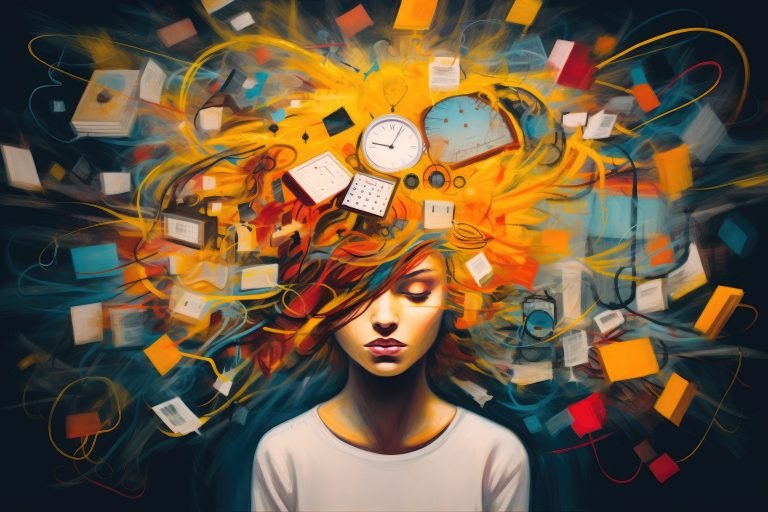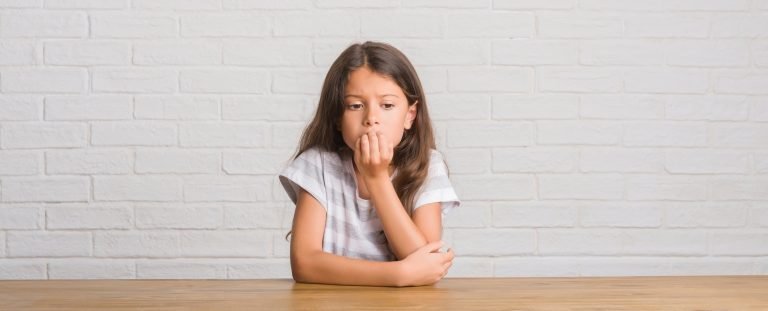
As a seasoned school counselor, I’ve witnessed firsthand the transformative power of teaching friendship skills.
Children’s social development is as critical as their academic growth, and our role is to guide them in forming healthy, supportive relationships. In this blog, I’ll share my personal insights and strategies that I have used to empower students in their journey of building lasting friendships.
The Role of Friendship in Childhood Development
Research consistently highlights the importance of social skills in children’s overall well-being. Positive peer relationships contribute to emotional health, conflict resolution abilities, and the development of empathy. It’s our job to ensure these skills aren’t left to chance.
That is why I ensure that I have on hand some of the best resources to help support my students in this area. Whether it be planned individual or group therapy, or unplanned, organic opportunities that arise, I want to ensure that I have some of the best resources and tools available so I can support my students. So here is some of my go-to resources, my favorites if you will!

Board Games: More Than Just Play
“Friendship Quest” is a perfect example of a social skills board game that translates essential interpersonal skills into a language children understand – play. Over 115 reflective question cards challenge kids to ponder real-life situations, from being a good ally to tackling bullying. It’s suitable for a variety of settings, hence why this printable game adapts seamlessly to individual or group sessions.
In practice, I’ve used this game to spark discussions about many topics relating to pro-social behavior and friendship skills, including effective communication. A card asking, “What would you do if your friend didn’t want to share?” lead to my group having insightful and rich conversations on sharing and understanding others’ perspectives.

File Folder: Unhelpful vs Helpful Friendship Skills
This Social Skills and Friendship Skills File Folder is an invaluable interactive tool that helps categorize behaviors as helpful or unhelpful. It’s not just a sorting exercise; it’s a visual and kinesthetic way of processing information and developing insight into friendship skills and social interactions. Children often grasp abstract concepts better when they can manipulate physical items, making this an excellent tool for reinforcing positive behaviors.
For instance, during a session, a student sorting cards told me, “This is like picking the kind cards.” This simple activity translated into a deeper understanding of kindness in their daily interactions and how kindness is the foundation of good friendship skills.

Narratives: Crafting Empathy through Stories
This “Buddy vs Bully Story” presents characters that children can relate to, providing them a safe space to navigate the complex feelings around bullying. When I read this with students, it becomes a catalyst for discussing their experiences and brainstorming solutions to bullying, promoting a culture of compassion.
Clearly differentiating between “buddy” qualities and “bully” qualities, this story is relatable, easy to understand and great way to explore friendships in a fun and engaging way.
In one session, a child I was working with identified with the characters kindness and later intervened in a bullying situation, using the exact words and scripting that we had reflected on and discussed in the story. That is what I love about using resources that are effective – they facilitate change, they help with growth mindset and empower our students!
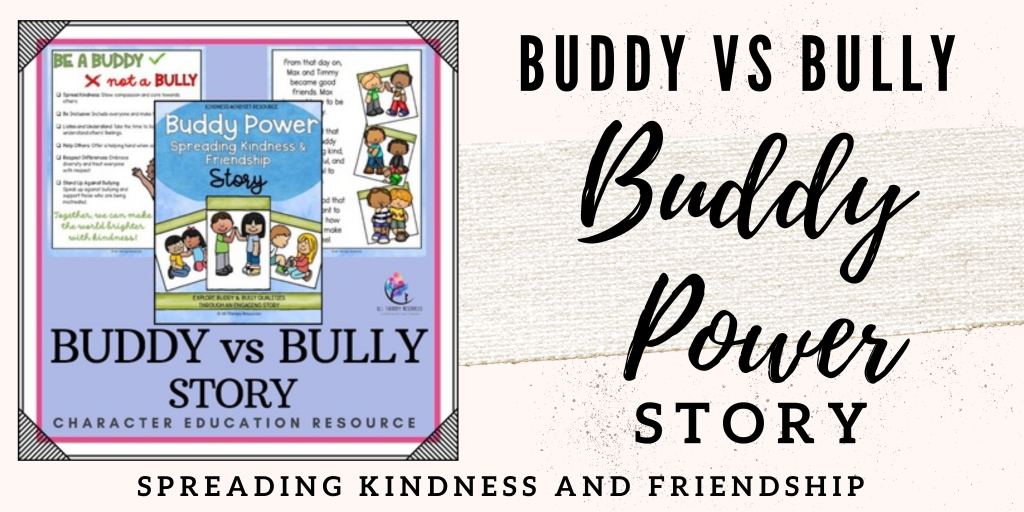
Scenario Cards: Navigating Real-Life Situations
Social Skills Scenario Cards are another gamechanger. I have the perfect set of reflective social skill scenario cards! I whip these out so many times that I have laminated them for longevity, and keep 2 sets on hand as one set tends to go walkabouts…aka I work in a district with another counselor! Don’t be misled. These scenario cards are not mere conversation starters; they’re gateways to self-discovery and better social understanding. By contemplating scenarios that require problem-solving and empathy, students learn to articulate their thoughts and listen actively.
One card asks, “How might you feel if you were left out of a game?” Discussing this potential scenario helps to unlock conversations and perceptions about inclusivity. This is a great catalyst for open and robust discussions, which leads to action plans for creating an inclusive playground environment.

The Impact of Teaching Friendship Skills
I have personally found these resources to have an immeasurable impact. They not only teach friendship skills but also shape perspectives, influencing how children view themselves and their peers. By integrating these tools into your counseling program, you can provide children with the compass they need to navigate the social world.
Enhancing your counseling toolkit with games, stories, and scenarios is a great proactive step towards cultivating a nurturing school environment. It’s about planting seeds of empathy, communication, and support that will grow into the foundation of pro-active social and friendship skills.
We have the privilege and responsibility to foster these skills. So let’s continue to utilize the great resources available, empower our students, one friendship skill at a time. Together, we can create a legacy of kindness, understanding, and connectedness that extends far beyond the school gates.
FAQs for School Counselors on Fostering Friendship Skills
- How do I incorporate friendship skills into a crowded curriculum? Start by integrating social skills activities into existing programs. For instance, use games like “Friendship Quest” during SEL (Social Emotional Learning) sessions. Brief daily activities, lunch bunches, such as sorting behaviors using the Friendship Skills File Folder, can also be effective without requiring large blocks of time.
- What is the most effective way to teach friendship skills to a diverse group of students? Employ various resources that cater to different learning styles. Games, stories, and scenario cards address the spectrum of auditory, visual, and kinesthetic learners. Also, tailor discussions from these activities to suit individual or group needs, considering cultural and individual differences.
- How can I measure the progress of students’ friendship skills? Use reflective question cards to assess students’ understanding before and after activities. Observe changes in behavior during unstructured times, such as recess. Peer feedback and self-reflection sheets can provide qualitative data on students’ social skills development.
- Can these resources help students with special needs? Absolutely. Many social skills resources are designed to be inclusive and adaptable. For example, “Buddy Power: Spreading Kindness and Friendship” uses simple language and relatable situations that can be accessible for students with special needs. Modify the activities to match the developmental levels and learning styles of your students.
- What role do parents play in developing their children’s friendship skills? Parents are pivotal. Encourage them to reinforce the skills learned at school. Share tips and activities, like discussing the “Buddy vs Bully Story” at home. Offer workshops or information sessions to teach parents how to promote and model positive social interactions.
- How do I support students who are reluctant to participate in social skills activities? Build trust and rapport with these students first. Offer them roles that feel less intimidating, such as helping to set up a game or being a scorekeeper. Over time, as they become more comfortable, gradually encourage them to engage more fully with the activities.
- What’s the best way to address bullying when teaching friendship skills? Be proactive by incorporating bullying awareness into everyday learning. Empower bystanders to become upstanders with clear strategies and support.
- Can these resources be used in one-on-one counseling sessions? Yes, they can be very effective in individual sessions. Tailor the use of tools like scenario cards to the specific challenges a student is facing. Personalize discussions to help them apply the lessons in their own life contexts.


